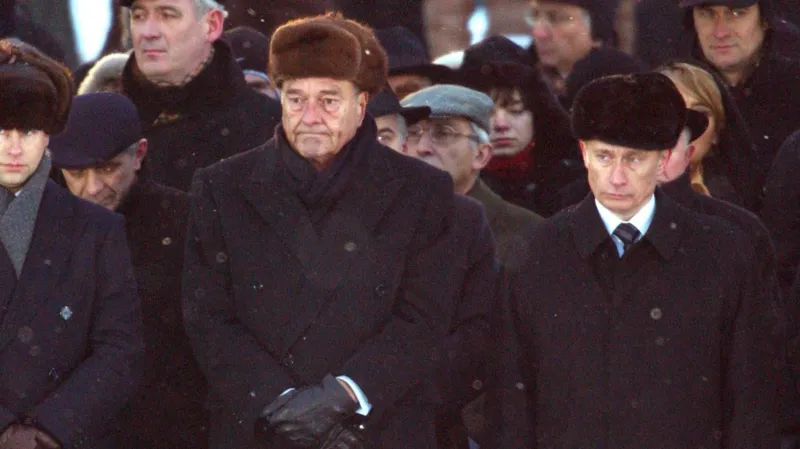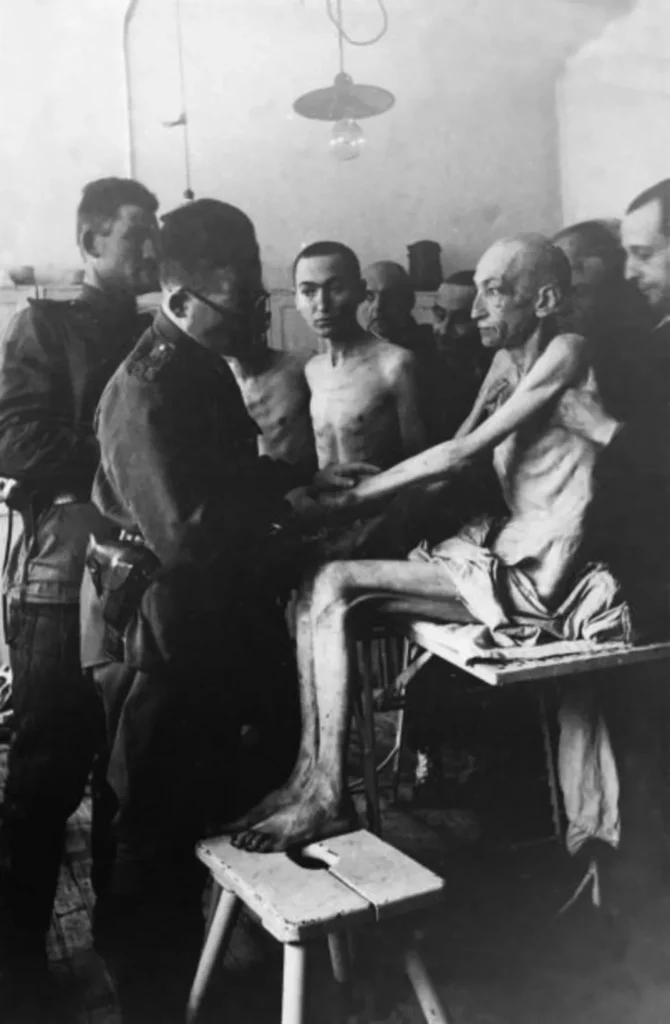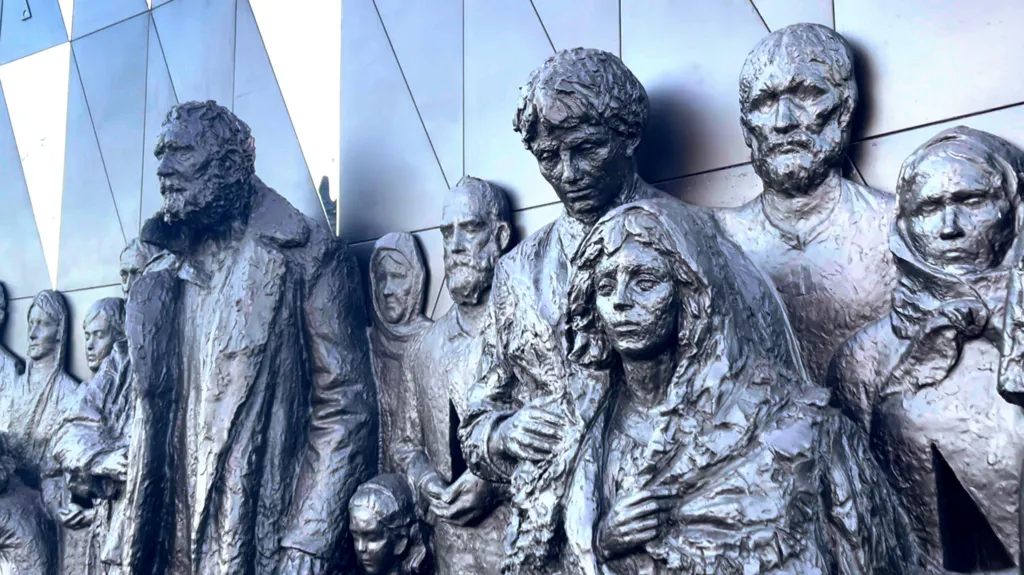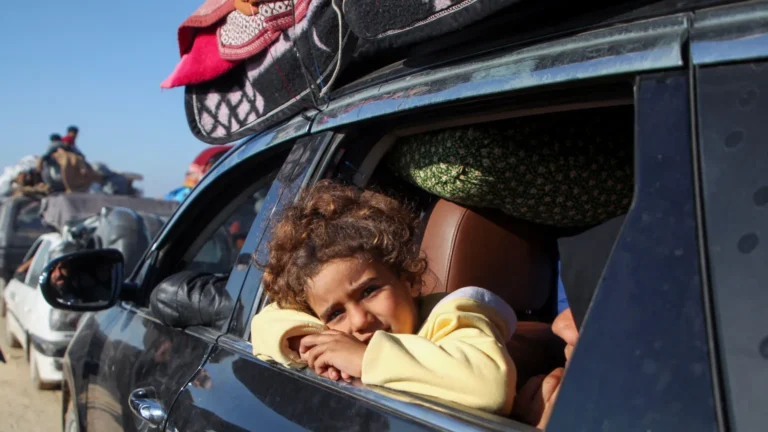On the edge of St Petersburg stands a dramatic memorial more than 40 metres high. At the very top is the figure of a mother with her children.
Down below, depicted in bronze, are real stories of human suffering.
At the bottom of some steps burns an eternal flame surrounded by the names of Nazi concentration and extermination camps.
Auschwitz, Sobibor, Belzec, Treblinka…
Terrifying words synonymous with the Holocaust.
Yet this is not a Holocaust memorial as such. Its official title is “the memorial to Soviet civilians who fell victim to the Nazi genocide”.
I listen to a tour guide as she tells a group of schoolchildren about the Treblinka-2 extermination camp. There the Nazis murdered up to 900,000 Jews.
“Treblinka-2 was a death camp where a large number of people were killed in gas chambers,” she says, without specifying that most of the victims had been Jews.
Russian President Vladimir Putin unveiled the monument last year on 27 January: a date with a double historical significance for Russia. On this day in 1944 Soviet forces broke the almost 900-day siege of Leningrad. Exactly one year later the Red Army entered the gates of the Auschwitz death camp.

It is because of the Red Army’s liberation of Auschwitz that 27 January was later declared International Holocaust Remembrance Day.
But when he opened the memorial to Soviet civilians, Vladimir Putin spoke not of the Holocaust, but of the “genocide of the Soviet people”.
He argued that the Nazis’ aim had been “to seize our country’s rich natural resources and territories, as well as to exterminate the majority of its citizens”.
It’s not that Russia has gone silent on the Holocaust. In the run-up to the 80th anniversary of the liberation of Auschwitz, there have been several Holocaust-related events across the country.
But in Russia today there is a discernible shift in focus, away from the Holocaust to how the Soviet people as a whole, including Russian people, suffered in World War Two. More than 27 million Soviet citizens were killed in what is known here as the Great Patriotic War.

This change in emphasis hasn’t gone unnoticed.
“Nobody argues that there were millions of victims during the second world war,” Israel’s Ambassador to Moscow Simone Halperin tells me.
“But an industrialised plan to kill, eliminate, erase from the face of the earth a race: that was against the Jewish people. I think it is of critical importance to remember that the Holocaust was designed as the genocide of the Jewish people.”
“It is not because [the Russian authorities] do not want to speak about the Holocaust or the Jews,” suggests historian and researcher Konstantin Pakhaliuk.
“The idea is about presenting Russians as victims, to feel that we are victims: victims of Western powers, victims in history. That is the core idea of this narrative.”
Konstantin lives and works abroad. Back home he has been declared a “foreign agent”, a label often used to punish critics of the Russian authorities.
He argues that the narrative of Russia as victim has become especially strong since the start of Russia’s war in Ukraine.
“If you are a victim, you cannot bear responsibility,” Mr Pakhaliuk says.


